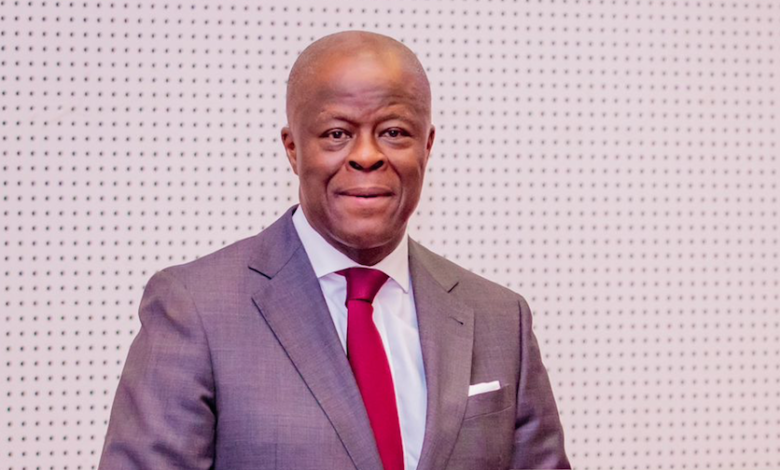The Minister of Finance and Coordinating Minister for the Economy, Wale Edun, on Thursday said the federal government cannot rely on borrowing to fund the 2024 budget.
The government, he said, must intensify efforts to generate adequate revenues to reduce its current high deficit financing.
The minister stated this when he appeared before the joint Senator Committee scrutinising the 2024-2026 Medium Term Expenditure Framework and Fiscal Strategy Paper led by Senator Sani Musa.
Edun briefed the joint panel in company with the Executive Chairman, Federal Inland Revenue Service (FIRS), Mr. Zacch Adedeji and the Director General of the Debt Management Office, Ms. Patience Oniha, before the lawmakers called for a closed session.
- IDP fire: Borno govt distributes relief materials to victims
- Housing deficit: Tambuwal restates Senate’s commitment to implement master plan
The minister explained that the best way Nigeria could fund its annual budgets was to spend more money on infrastructure that could generate revenues.
He also said the advanced countries have increased their interest rates because they wanted to bring down inflation rate to stabilize their economy.
This was the same point he stressed at the 40th annual Conference of the Chartered Institute of Directors (CIoD) held in Abuja, saying the development is forcing the government to depend on its “domestic resource mobilisation.”
The minister told the Senate panel that accessing foreign loans would therefore be very expensive for a developing country to cope with.
Edun said, “Clearly the environment that we have now, internationally as well as nationally, we are in no position to rely on borrowing.
“We have an existing borrowing profile. Our direction of tariff is to reduce the quantum of borrowing or intercepting deficit financing in the 2024 budget.
“Simply put internationally, there is a focus among rich countries on bringing down the inflation rate to stabilise the economies and give them opportunity for investment growth.
“They are in the process, sacrificing that immediate goal for compacting their economies, or at least contracting the money supplies and pushing up the interest rates and of course high interest rates and investments don’t go together.
“What is left for us to access those funds are expensive so it is the last thing that we must rely on.
“As we know we have all the figures and debt servicing and cushioning 98 per cent of government revenue.
“The last thing you can think of is to pile up more debts. Government needs to not just maintain its activities, it needs to spend more. If you look at government spending, if you look at the budget as a percentage of GDP, ours is one of the lowest being 10%, even Ghana is at 25%, rich ones they are 50%.
“The very rich countries have to be most advanced in terms of social safety nets and their social security system at 70% of GDP. Government spending definitely will lead to increase.
“The number one source of revenue, especially in the short term, even in the medium term is all revenue.”
Senator Musa, the Chairman of the joint panel scrutinising the MTEF-FSP document, expressed fears that the revenue projections of the ministries, departments and agencies of the federal government that had so far appeared before his panel were a far cry to what the federal government was proposing as income in the 2024 fiscal year.
Musa said, “Currently there are lots of leakages in the use of government resources.
A lot of funds being generated as revenues by most MDAs are not being remitted as at when due. Some even remit funds a year after they collected the money.
“The office of the Accountant General of the Federation should look properly in that direction.”
Meanwhile, at the CIoD conference, the minister said, “The government does not have the funding and the funding is not available internationally. They are not really interested and they have inflation to fight in the western world so they have to keep interest high and tighten the money supply and not provide any kind of development financing at the level needed.”
Edun said the essence of attracting investment into the economy is to increase productivity, grow the economy, create jobs and reduce poverty, which he said is the overall aim of President Bola Ahmed Tinubu and his economic policies.”
He stated that strong corporate governance is needed in the country as it increases investors’ confidence, provides access to capital, promotes risk management and drives innovation and efficiency.
He added that the CIoD has played a major role in enhancing the quality of world leadership and organisation while playing a key role in providing independent directors across all the boards in Nigeria.
Former Minister of Finance, Dr. Olusegun Aganga said Nigeria has the hallmark of a weak economy. He said the bane of the economy is lack of continuity and implementation of policies.

 Join Daily Trust WhatsApp Community For Quick Access To News and Happenings Around You.
Join Daily Trust WhatsApp Community For Quick Access To News and Happenings Around You.


